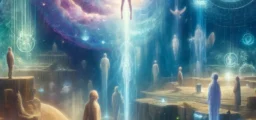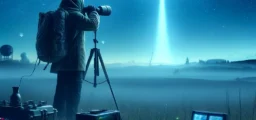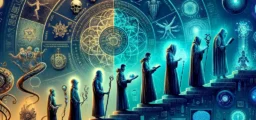Duke University & Parapsychology

Duke University has a long and storied history in the field of parapsychology, which is the study of anomalous psychological phenomena such as extrasensory perception, psychokinesis, and survival after death.
The origins of parapsychology at Duke can be traced back to the 1930s when a group of researchers led by Dr. J.B. Rhine established the Department of Psychology at the Duke University School of Medicine. Dr. Rhine and his colleagues were interested in studying psychic phenomena and developed a number of experimental methods and techniques to investigate these phenomena.
One of the key contributions of the Duke researchers was the development of the concept of “psi,” which refers to the hypothetical mental processes that are responsible for psychic phenomena. The Duke researchers proposed that psi could be measured and studied using statistical methods, and they developed a number of experimental paradigms and protocols to test for the presence of psi in the laboratory.
One of the most famous studies conducted by the Duke researchers was the “card-guessing” experiment, which involved subjects attempting to guess the order of cards in a deck that was shuffled by a researcher. The results of this experiment and others like it suggested that some people had psychic abilities, and the Duke researchers concluded that psi was a real and measurable phenomenon.
Over the years, the Duke parapsychology group attracted a number of well-known researchers and scholars, including Dr. Stanley Krippner, Dr. Charles Tart, and Dr. Dean Radin. These researchers continued to study psychic phenomena and expanded the scope of parapsychological research to include other anomalous phenomena such as telepathy, clairvoyance, and psychokinesis.
Despite the Duke parapsychologists’ significant contributions, parapsychology has remained controversial and is not widely accepted within mainstream science. Many scientists have criticized the methods and conclusions of parapsychological research, and there is still a lack of consensus within the scientific community about the validity of psychic phenomena.
Despite the controversy, parapsychology at Duke University has continued to thrive and evolve over the years. In the 1980s, the Department of Psychology established the Division of Perceptual Studies, which is dedicated to the study of psychic phenomena and other anomalous experiences. Today, the Division of Perceptual Studies at Duke is one of the leading centers for parapsychological research in the world, and it continues to make important contributions to the field.
In conclusion, Duke University has a long and distinguished history in the field of parapsychology, and the research conducted by its parapsychologists has made significant contributions to our understanding of psychic phenomena. While the field remains controversial, the ongoing research at Duke University and other institutions continue to shed light on these mysterious and elusive phenomena.






Comments are closed.